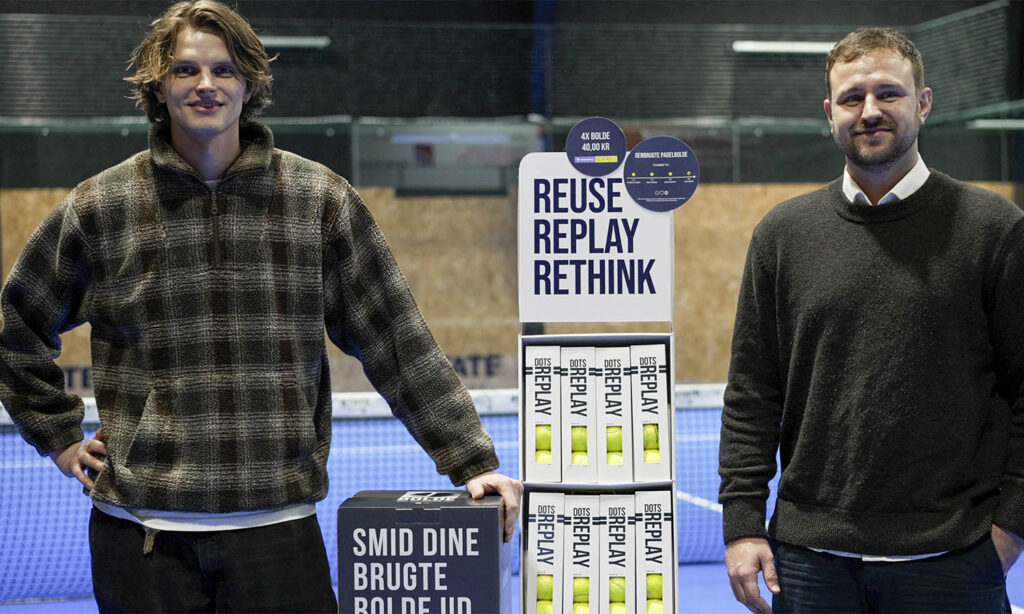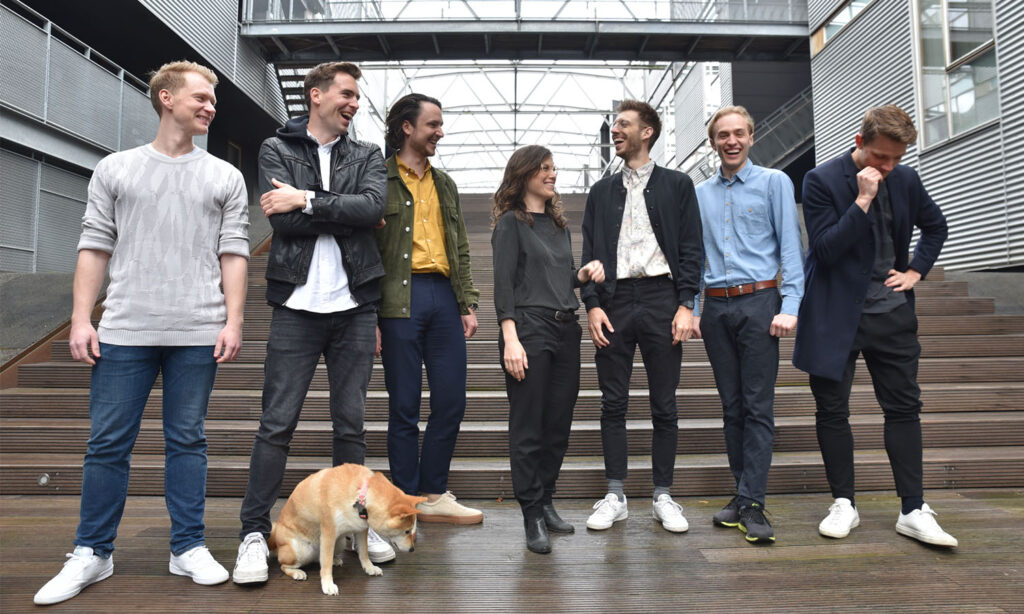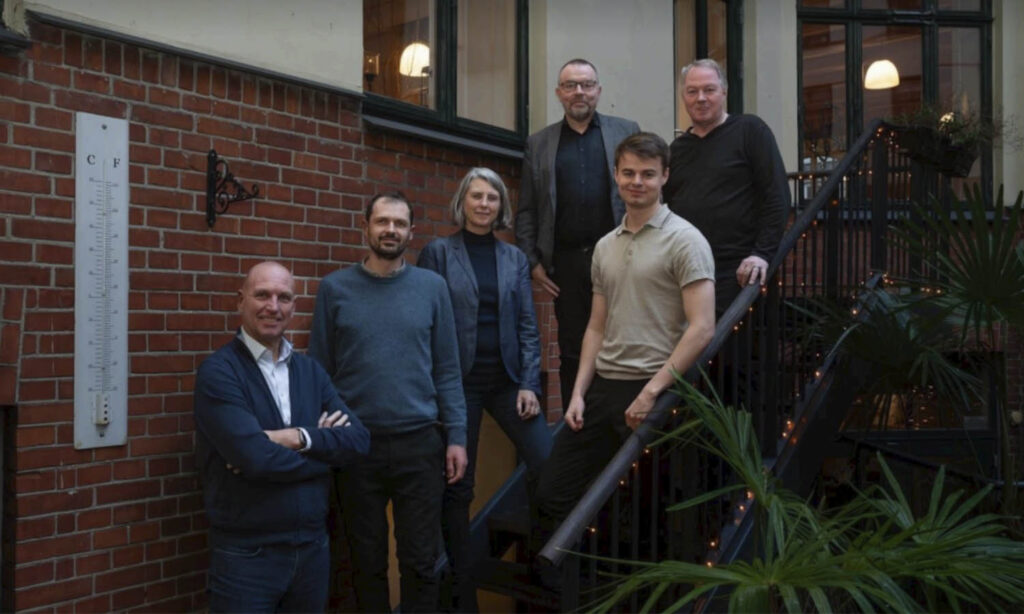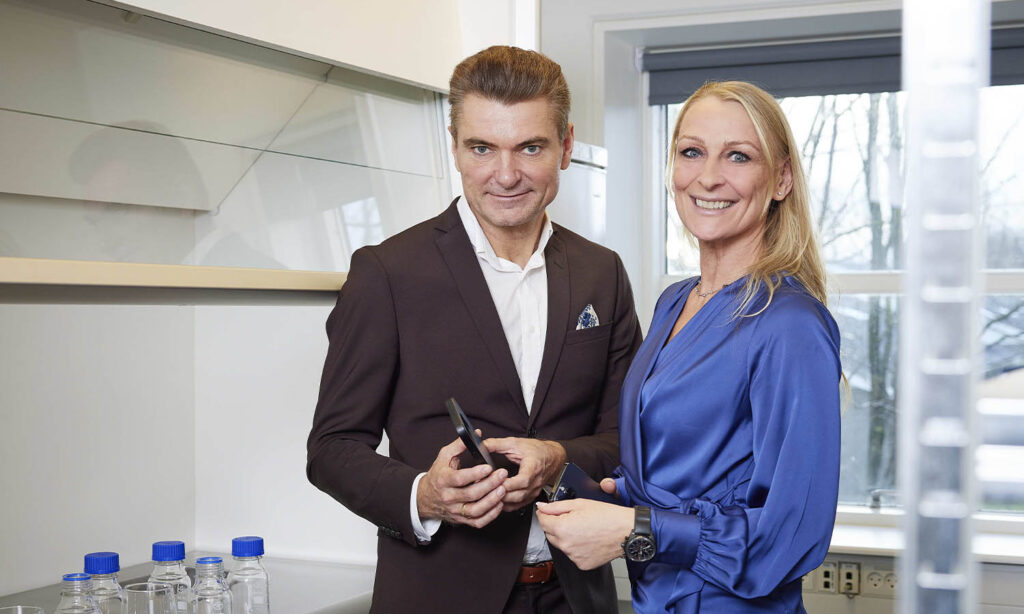The story of the game developer BetaDwarf is the quintessential startup fairytale. A band of game developers illegally moves into unused space at a university, where they live until they are kicked out. It takes a Kickstarter campaign and a huge loan for the developers to finish their game. Fortunately, they lived happily ever after, as the game ‘Forced’ was a commercial success. The band of game developers succeeded without any help from investors.
“To be honest, we never considered pursuing investments. Simply because we didn’t know it was a possibility. Back then the game developers figured it out themselves or went to a publisher. Nobody had investors,” says Steffen Kabbelgaard, CEO and co-founder of BetaDwarf.
Today, the company is working on its third game, has 40 employees, and landed two investment rounds led by London Venture Partners and Makers Fund totalling DKK 49 million.
“A lot has happened in the industry in the past 10 years. It was quite difficult raising money 10 years ago, but after small teams began creating big businesses, venture funds started paying attention,” Kabbelgaard says, and adds that BetaDwarf’s investments are dedicated to growth:
“We have been profitable, but with the investors on board we are scaling up and taking greater risks – and betting that our new thing will be huge.”

Investments are booming – but not for early-stage studios
Sale tags with price points in the millions and listings on the stock exchange are no longer rarities in the gaming industry. Most recently, Roblox went public at a valuation of just over 38 billion USD.
It comes as no surprise then, that 2020 set a new record when it comes to investments in the gaming industry. According to GamesIndustry, 13.2 billion USD was invested globally (just over 80 billion DKK) – a massive increase of 77 per cent compared to 2019.
The vast majority of the investments are allocated to game studios that already have one or more successful games on the market. This way, the biggest risk – the first game – is taken out of the equation for the investors.
This was also the experience at BetaDwarf, who was not contacted by investors until after their first game had become a success. The founder believes that it can be significantly harder to attract investors at an early stage.
“The big challenge is that investors only invest money at an early stage if the person behind has a solid background and some experience. People coming out of Riot, Epic, and so on can easily raise money. But if you come straight from university, and this is your very first game, then the biggest hurdle is to build trust without experience,” Kabbelgaard says.

The Danish food chain is broken
“The lack of funding for new game developers is a continuous challenge. The market is growing, and the quantity of amazing, Danish successes is palpable, but for some reason, there are not many dedicated gaming investors in Denmark,” says Jesper Krogh Kristensen, Games Consultant at Vision Denmark, a business cluster for the visual industries in Denmark.
Where other tech startups are rapidly developing a primitive version of their software that they can begin selling, games are expense-heavy from the get-go. The game must be more or less finished before it can be sold, and that can take years, which is why an early investment can be crucial.

The innovation environment Capnova had a long-term focus and provided many of the early investments that helped new studios make their first game. Among the major successes are Sybo, Triband, Playdead, and, the latest, Ghostship. Yet a political decision a few years ago saw a pooling of the state’s startup investments into Innovationsfonden and Vækstfonden, which also spelled the end for Capnova. And that has left a gap in the investor chain.
“When the game studios reach a certain size, the funding problem is not that significant. If the studio has already published its first success, it can obtain foreign investments. But the food chain is currently broken; smart capital, like that from Capnova, is missing. The intention was that Innovationsfonden and Vækstfonden should pick up the slack, but their investment strategies have been unclear, which has led to significantly fewer investments in game studios, when compared to Capnova,” Kristensen says.
Copenhagen MatchUp
- Copenhagen MatchUp is an event targeted at the gaming industry, where national and international investors and publishers get the chance to meet the Danish gaming industry in a matchmaking format. The event is organised by Vision Denmark and the Danish Producer’s Association.
- For several years, the event has attracted a large number of foreign investors to Denmark, with several investments in Danish game developers as a result. Vision Denmark hopes more private investors in Denmark will find interest in the industry and its’ opportunities.
- Copenhagen MatchUp 2021 has 80 participating games companies from Denmark and 85 investors and publishers.
Loot Spawn: More relevant to investors than ever
After 20 years in the industry, including a stint as the VP General Manager and CEO for Swedish game developer Dice and with several stints at major game developer Electronic Arts, Swedish gaming veteran Karl Magnus Troedsson decided to become a business angelEn angel investor er en velhavende person, der tilbyder penge, mentorskab og ekspertise til start-ups og nystartede virksomheder. De påtager sig risici for et ... More five years ago. With the fund Loot Spawn, he is focused solely on the gaming industry.
“I’m not an investment banker – I’m a game-maker turned investor. That’s important to point out,” he says with a laugh, after listing his favorite games and movies from the 80s and 90s.
So far, he has actively invested in 14 companies – including Danish ‘Framebunker’ and ‘Geometric Interactive’ – which he still follows as closely as he can. But Troedsson understands why it can be difficult for investors from other industries to assess risk and ultimately invest in gaming companies.
“Tech-startups try to solve a problem: We are a better bank for young people, we are last-mile delivery, whatever their value proposition is. They are trying to make our lives better, faster, and smarter. That’s not what game developers are doing. We entertain. We are much more attuned to Hollywood. And if you don’t know games, which is a very hit-driven industry, how do you predict a hit?” Troedsson asks.

He believes that game developers are often more passionate about their games than a tech startup is about delivering pizzas efficiently. It is more about business, while for game developers it is a life goal to produce games.
“In the games industry – if one dares to say this — we have had a bad reputation for not being a real industry. Some of that can be tied back to exactly this: How can this be a real job when you are starving for the art?” Troedsson says.
Although there is still a long way to go, he believes that the industry has progressed a long way towards becoming more business-oriented. At the same time, demand for games has exploded – from both consumers and tech giants, who are ready to pay the price – whatever it may be. This makes the market increasingly interesting as an investor.
“There are a lot of exit scenarios for the game studios. Here’s just one scenario: There is almost a platform war going on. All the big companies see subscription as the future, so everyone is building a platform: The Netflix of games. In that kind of climate, game companies can be successful with a medium hit, because it gets picked up by the platform holders. And that means less risk in my opinion,” Troedsson says.
BetaDwarf: An investor keeps the company afloat
From the game developers’ point of view, Kabbelgaard from BetaDwarf also believes that the possibility of getting an investor involved today is better than ever before. For his game studio, it has been the right decision to partner with big business in the form of a couple of venture funds.
“Getting an investor involved creates completely different opportunities. It has resulted in peace of mind when it comes to planning for the future. Before that, it was like this: We will run out of money in six months. It is just survival, and that makes it hard to bet on something, that can really make a difference,” he says.
BetaDwarf has not only contributed with capital, but also with business development.
“We are insanely excited about investors now. It solves the problem of capital, but it has clearly also accelerated our learning curve and networking skills,” Kabbelgaard says.
This article is part of the theme “Games as a Business 2021”. You find the next part of the series right here:










 Kære læser, du er meget velkommen til at dele vores artikler på sociale medier, linke eller referere til artikler eller content på TechSavvy.media. Men ønsker du helt eller delvist at kopiere indhold fra sitet må det kun ske efter aftale med vores redaktion på editorial@techsavvy.media.
Kære læser, du er meget velkommen til at dele vores artikler på sociale medier, linke eller referere til artikler eller content på TechSavvy.media. Men ønsker du helt eller delvist at kopiere indhold fra sitet må det kun ske efter aftale med vores redaktion på editorial@techsavvy.media.
 Kære læser, du er meget velkommen til at dele vores artikler på sociale medier, linke eller referere til artikler eller content på TechSavvy.media. Men ønsker du helt eller delvist at kopiere indhold fra sitet må det kun ske efter aftale med vores redaktion på editorial@techsavvy.media.
Kære læser, du er meget velkommen til at dele vores artikler på sociale medier, linke eller referere til artikler eller content på TechSavvy.media. Men ønsker du helt eller delvist at kopiere indhold fra sitet må det kun ske efter aftale med vores redaktion på editorial@techsavvy.media.